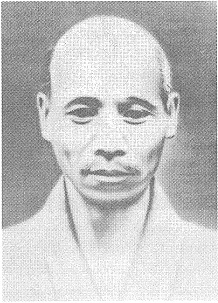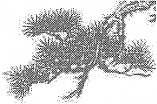|

贊曰:
富貴浮雲 拔類超群
已冠出家 投身空門
一塵不染 火裡精金
緇流翹楚 末法聖人
贊曰:
「富貴浮雲」:他雖然生在富貴之家,可是他看富貴如浮雲。
「拔類超群」:他真是人中之龍,是出乎其類,拔乎其萃的佛教人才。
「已冠出家」:他過了弱冠的年齡,已經二十歲,出家。
「投身空門」:投身到佛教裡了。
「一塵不染」:可稱得上是娑婆世界裡一個一塵不染的高人,一個清淨、沒有習氣的聖人。
「火裡精金」:娑婆世界就像一堆火,可是他能不增不減、在火裡沒有被熔化,卓然獨立清靜無染。
「緇流翹楚」:在出家人裡,他是特別清高及偉大的僧人。
「末法聖人」:也可說在末法時期覺悟的聖人。
又說偈曰:
能除百病般若湯 真誠親近法中王
感應道交靈異現 仁慈德化痛苦瘡
江天法海波濤湧 緬甸僧林芬芳香
躬行實踐好榜樣 金塔矗立放毫光
又說偈曰:
「能除百病般若湯」:般若湯可說是最邋遢的東西,也可以說是最乾淨的東西。最邋遢的是他的洗腳水、口水和黏痰所做成的湯。
|
|
A verse in praise says:
Viewing wealth and social rank as floating clouds,
He stood out from the crowd.
Having left home at twenty, he dedicated himself to Buddhism.
Not defiled by a single speck of dust, he was like refined gold smelted by fire.
Outstanding among monastics, he was a sage in the Age of the Dharma’s Decline.
Commentary:
Viewing wealth and social rank as floating clouds. Even though he was born in a rich family, he valued wealth and high social status as drifting clouds.
He stood out from the crowd. He was the dragon among people, which means he was outstanding and remarkable among all the talents in Buddhism.
Having left home at twenty, he dedicated himself to Buddhism. He left the home life at a very young age, twenty years of age.
Not defiled by a single speck of dust. In this Saha world, he was an undefiled lofty person - a pure sage without any bad habits.
He was like refined gold smelted by fire. This Saha world is like a blazing fire. He was able to maintain the state of “neither increasing nor decreasing”. He did not “melt” after being smelted in the blazing fire. Instead, he became remarkable, pure and free from defilement.
Outstanding among monastics. Among all the left home people, this monk was exceptionally lofty and extraordinary.
He was a sage in the Age of the Dharma’s Decline. We can also say that he was an enlightened sage in the Age of the Dharma’s Decline.
Another verse says:
The prajna soup cured the myriad illnesses.
With earnest sincerity, he drew near the Dharma King,
He evoked responses in the Way and miracles occurred.
With kindness and virtue, he alleviated beings’ painful wounds.
The waves of the Dharma Sea at Jiangtian billowed and surged.
His lofty reputation even spread to Burmese Sangha.
His exemplary practice served as a model for others.
The towering golden stupa emitted the hallmark light.
Commentary:
The prajna soup cured the myriad illnesses. This prajna soup can be considered both the filthiest and the purest at the same time. It was dirty because it was made of his saliva, phlegm, or feet-washing water. Originally, it was neither defiled nor pure. The dirtiest is just the purest and the purest is also the dirtiest. When something is filthy to the ultimate point, it becomes pure. When it’s pure to the ultimate point, it turns into filth. If you can grasp this principle, you will understand that which “neither increases nor decreases, neither comes into being nor ceases, neither is defiled nor is pure.” If you are free of polluted thoughts and behavior in the midst of the defiled, that is true purity. If you can maintain a pure body and mind in every move and purify the three modes of karma, it’s considered true purity. On the other hand, if the three modes of karma are not pure, one is filthy even in the midst of purity. Thus, everything is made from the mind alone. This prajna soup can cure hundreds of ailments – any disease.
|
|
本來是不垢不淨,最邋遢的就是最乾淨的。最乾淨的就是最邋遢的。邋遢到極點就是乾淨,乾淨到極點又成邋遢。所以你能把這種理論想通了,就明白什麼是不增不減、不生不滅、不垢不淨。你能在邋遢裡沒有邋遢的思想和行為,那是真乾淨。你能在五濁惡世,一舉一動身心清淨、三業清淨,這就是真乾淨。三業不清淨,就在清淨裡也變成邋遢的。所以一切唯心造,這個般若湯可以治百病,什麼病它都可治。
「真誠親近法中王」:他當初也就是一念真誠出家修道,得到佛法的滋潤,所以才能感應道交。
「感應道交靈異現」:所謂「有感斯通,無求不應。」應。有求必應,所以感應道交,感應相和合了,所以本來做不到的事情及不可思議的事情發生。
「仁慈德化痛苦瘡」:他用仁慈道德來教化人,所以把眾生痛苦的瘡癰都化開了。抹上一點黏痰、口沫瘡就好了。也就是把眾生的痛苦災難解除了。
「江天法海波濤湧」:江天寺的法如大海那麼深,不可思議,如海裡波濤湧現起來。
「緬甸僧林芬芳香」:在緬甸,住有中國及緬甸的出家人,由金山活佛的感召力量,無論中國及緬甸的出家人,都是很令人尊重,所以僧人裡也有一股香氣,人人不會罵出家人,由他種種行為,使出家人同享光榮。
「躬行實踐好榜樣」:他是真真實實的行者。
「金塔矗立放毫光」:好像緬甸的大金塔巍然矗立,而放毫光,金山活佛的光芒會照遍所有佛教的地方。 |
|
With earnest sincerity, he drew near the Dharma King. He left the home life to cultivate the Way because of one genuine sincere thought. Therefore, he was nurtured by the Buddhadharma and evoked a response in the Way.
He evoked responses in the Way and miracles occurred. It is said, “When there is a response, it penetrates. No wish is unfulfilled.” When a request is fulfilled, and there is a response in the Way, then things that were originally impossible or inconceivable can happen.
With kindness and virtue, he alleviated beings’ painful wounds. He used kindness and virtue to teach and transform people. He gave relief to living beings’ painful wounds by applying his phlegm or saliva. He alleviated living beings’ sufferings and saved them from the disasters they encountered.
The waves of the Dharma Sea at Jiangtian billowed and surged. The Dharma of Jiangtian Monastery is as deep and inconceivable as the ocean. It gushed forth like giant waves on the sea.
His lofty reputation even spread to Burmese Sangha. In Burma, there were both Chinese and Burmese monastics. Due to the Living Buddha’s influence, monastics from both China and Burma were well respected. Thus, Sangha members enjoyed a fine reputation and no one dared to criticize them. Due to the Living Buddha’s various deeds, monastics were held in high esteem.
His exemplary practice served as a model for others. He was a genuine cultivator of the Way.
The towering golden stupa emitted the hairmark light. It’s like the golden stupa in Burma standing tall and upright emitting the hairmark light [which comes from between the Buddha’s eyes]. It’s as if the brilliant rays of the Living Buddha of Gold Mountain illuminated all places in Buddhism.
|
|
活佛尊號的由來
活佛常常對人說,他的法名叫妙善,何以會有「活佛」兩字的尊號呢?據認識活佛的僧俗所說,也不一樣,但是每一種說法,都是有趣的故事。傳說最多的一說,活佛早年住金山時,他原本是外寮「行單」一個苦惱和尚,充當藏經樓上香燈職務,他不愛說話,只歡喜坐禪,並且歡喜爬在窗門檻上打坐,人家告訴他,窗門上坐不得,太危險了,他說:「我是要降伏睡魔。」
一天,他又是在窗門檻上打坐,一時昏沈不覺,就一個筋斗栽了下來,大家看見他從窗門上跌下來,都驚叫起來,說:「了不得!這一下會跌死!」再細看時,他並不曾跌倒,仍然盤著雙腿坐在地下,他看大家擁了上去,馬上爬起來,拍拍屁股上的灰,嘻嘻哈哈跑上樓去了,大家看見這個情景,都認為是奇蹟!藏經樓的門窗離地面有十幾丈高,地下又是鋪的石板。他掉下來跌不死,又不傷,反而結跏趺座安安穩穩坐在地下,有的說,只有活佛才有此神通妙用,由此大家都稱他是活佛。 |
|
How the Living Buddha Got His Name
The Living Buddha often told people that his Dharma name was Miao-Shan (wonderful goodness). Why then did they call him “Living Buddha”? There are different stories and each one is interesting. The most popular one goes like this: When he first lived at Gold Mountain, he stayed in the outer hall and took care of lighting incense at the Tripitaka Hall. He was taciturn and loved to sit in meditation, especially on a windowsill. People cautioned him not to sit there because it was dangerous. He replied, “I’m trying to subdue the sleep demon.”
One day, while meditating on the windowsill, he dozed off and tumbled down. Seeing him fall, people cried out, “Gosh! He must be dead!” But when they took a closer look, they saw that he was sitting on the ground with his legs still folded. When the Living Buddha saw people crowding around, he immediately got up, dusted off the seat of his pants, and ran upstairs smiling. People considered it a miracle!
The windowsill was several dozen feet high, and the ground was covered with stone slabs. The Living Buddha did not die or get hurt from the fall, but instead remained in lotus posture. People said that only a living Buddha had such spiritual power. And so that’s how he got his name. |